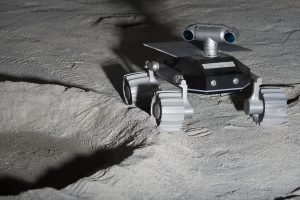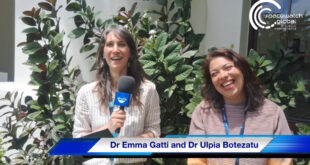
In the latest SpaceWatch Middle East interview series, Torsten Kriening speaks to Rahul Narayan of TeamIndus. They discuss the work of the World Economic Forum, ‘Future of Space Technologies’ Council.
On 13-14 November 2016 the Annual Meeting for the Global Future Councils took place in Dubai, UAE. Once a year members of this World Economic Forum Network convene to envision and discuss future global trends, identify key factors influencing them, analyse risks and challenges. They are aimed at challenging the conventional and promoting innovative thinking on the future.
The findings are presented at the Annual Meeting in Davos as well as other key events that have an impact on the governance and global decision-making process, and shape the future of international affairs.
SpaceWatch Middle East questions for Rahul Narayan:
What motivates you about space?
The infinite potential, the engineering challenge, the vast uncertainty of explored “terrain”, “pioneering initiative” when it comes to exploration.
What are your top 3 space visions for 2030?
- Space as a critical component of core global connectivity infrastructure
- Space as a destination for science, tourism, strategic interests and more
- Predict first permanent habitation beyond LEO.
What are the 3 main concerns / risks for space in 2030?
- Escalating costs likely to put Space beyond newer Space countries
- NewSpace companies and the risks they introduce
- Space regulation becoming a bottleneck to growth.

How do you see the 4th Industrial Revolution having an impact on space?
Space will be a critical component of the plumbing needed for 4th IR, Space as a destination will be a “great to have” addition to the 4th IR, expected to create new opportunities, push the boundaries on engineering and provide the missing links for the hyper-connected, real-time, high bandwidth data-hungry user human and otherwise.
Do we need more agile regulations to act with new technologies and legal challenges – such as space weapons, cyber, space resources (code of conduct)?
Quite like cyber laws, Space “laws” will challenge the conventional wisdom of lawmakers and require for them to look into the future before defining and enabling the Space generation. Agility of regulation is less of a challenge, more important is the ability of space regulation to account for all its impact.
How can informed press help to conduct your messages?
Help separate the boys from the men, the loonies from the genuine engineers, help celebrate & recognize true progress and not just token expansion.
SpaceWatch Middle East thanks Rahul Narayanof TeamIndus for the interview.
Original published at: http://spacewatchme.com/2017/01/rahul-narayan/
 SpaceWatch.Global An independent perspective on space
SpaceWatch.Global An independent perspective on space

